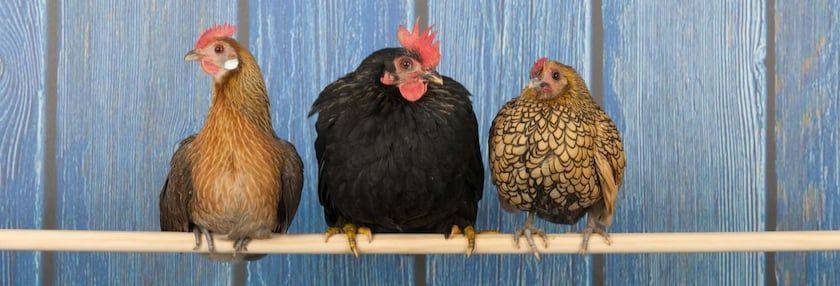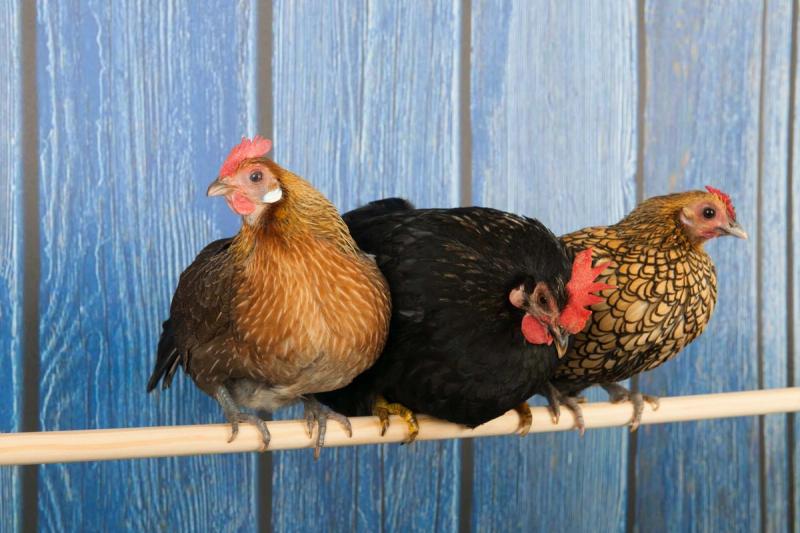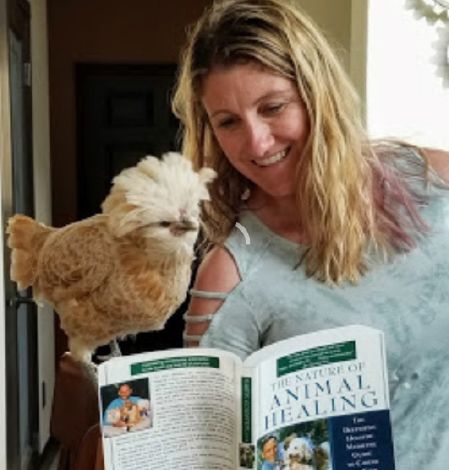The Mighty and Mini Bantam


Mini bundles of cheerful personality!
That’s the best way to describe the adorable and personable bantam. Perfect for smaller spaces and adored by all backyard chicken enthusiasts, these mini chickens are now popular urban pets.
The history of an import
Oaky, so what is a bantam? Simply put, it’s a miniature version of many popular “regular-sized” chickens. In fact, there are over 400 different varieties, including: Booted, Hamburg, Modern Game, Sebright, Silkies and many more.
They originated in Bantan, Indonesia. Sailors and passersby were delighted with the smaller chickens and scooped them up to take them back to their home country. The word “Bantam” is a, English misnomer of “Bantan”.
There are three main types of Bantams: True, Miniaturized, and Developed.
- True Bantams are exactly that, true mini chickens that have no larger counterparts. They are naturally bred with no human husbandry. Sebrights, Rosecomb, and Nankins are True Bantams.
- Miniaturized are bred specifically to be small. They originated from Rhode Island Reds, Cochins, and Orpingtons.
- Developed are already small breeds of chickens who have been unambiguously bred to become even smaller with human intervention. Belgian, Pekin, and Japanese are examples.
Big in appearance, but…
They’re small! In case it wasn’t already obvious, Bantams are small, compact birds. They rarely tip the scales at just 2 pounds some breeds are even smaller.
Truly, these teeny fowl come in all shapes and colors! From fluffy feathered to sleek and long-legged, chicken aficionados are sure to find a breed to their liking. Feathering, combs, wattles and color all depend on what breed the Bantam is, or descended from.
They offer personality, plus
Bantams’ personality also depends on the breed. Some breeds are very affectionate and calm like Belgian Bearded, Booted ,and Silkies; others are practically wild and only prefer the company of other birds like Catalana, Fayoumi ,and Modern Game.
Bantams are great flyers! Keep these in mind when building their coop. They require a lot less square footage than larger birds, but steeper walls are necessary in keeping you feathered friend safe.
Researching each breed is imperative. All of the birds are unique in their own way and can round out your flock quite nicely.

Any health issues?
In general, Bantams carry the same trials and tribulations as their larger cousins. However, being smaller and having faster metabolisms, they can get cold easier. This isn’t to say they can’t handle wintery weather; they may just need a more insulated coop to stay comfortable.
Mites, lice and parasites and hound Bantams just like any other chicken. Keeping on top of the pest control is necessary for any flock family.
Bantams require a lot less food to stay healthy, but be sure to keep their food fresh even if they don’t empty the bowl quite as quickly.
These little ones make very easy prey… so be sure to keep their run and coop well protected on all sides.
Is that an egg, or what?
Like everything else with the Bantam, their eggs are very small…roughly half the size of a regular chicken egg.
The color and quantity of eggs depend on the breed of Bantam. Breeds like Brahma and Barred Rock Bantams lay around 200 eggs a year, whereas Silkie Bantams may only lay 100 or so eggs a year.
They sometimes get a bad rap for laying, but research is key to making sure you get the number of color of eggs you desire. In other words, check the breed history and attributes.
In conclusion…
These miniature birds are adorable, quirky, friendly and make perfect pets for backyard chicken lovers! They may be small, but they make up for what they lack in size with character. The breeds differ quite a bit, so having a mix of different types of Bantams will give your flock a nice array of color, personality and eggs!
Tags:Chicken Chatter

Acreage Life is part of the Catalyst Communications Network publication family.
















